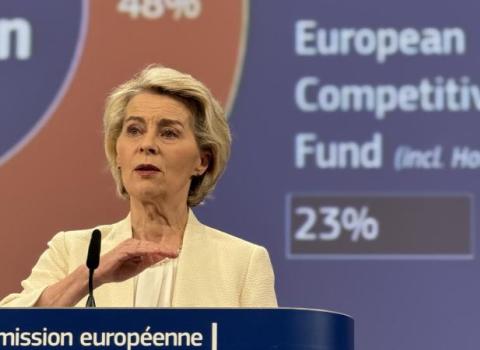Three award-winning Greek entrepreneurs are making progress growing their companies, but finding the country’s economic malaise presents extra hurdles for start-ups.
Evangelos Pappas, founder of the medical technology company, RTsafe, last week took first prize in the MIT Enterprise Forum Greece. He is plugging on, despite the way that economic problems are compounding the difficulties of building a start-up, and says, “Not once have I thought about us leaving the euro.”
RTsafe aims to make high dose cancer radiation therapy safer by creating patient-specific 3D avatars, or models, which can be used to locate tumours and assess proposed treatment plans. While targeted, high dose radiation is effective in killing cancer cells, there is a risk that normal cells will be killed too. Using the 3D models, clinicians can ensure they are correctly targeting the cancer and check for any potential errors, before the radiation is administered to a patient.
The initial systems are focussed on brain tumours and head and neck cancers, where precision is paramount.
RTsafe’s technology combines expertise in medical physics with highly accurate 3D printing technology.
A year ago, the company was a winner in the 2014 Hellenic Entrepreneurship Awards, a scheme created to help experienced and budding entrepreneurs in Greece overcome economic disadvantage and bring new business ideas to fruition.
While building the business in Athens, Pappas has been looking outwards, agreeing a collaboration with the University of Texas Health Science Center, to validate RTsafe’s technology, and setting up labs and offices in Lausanne, Switzerland.
But while Pappas is working to sell the technology around the world, it has become hard to get the supplies needed to produce the avatars. With a ban on transferring money abroad, importing supplies has become impossible. “We cannot get our chemical ingredients from Switzerland right now,” says Pappas. “People cannot use PayPal or the app store.”
The second prize winner in the MIT Enterprise Forum is facing similar constraints. Reportbrain is a big data analytics specialist with the capability to scan and interpret more than two million news articles per day in 42 languages, generating customised reports to inform business decisions. The company is run by experts in computer science, mathematics, engineering and business management in the US, UK and Greece.
However, Alex Kostopoulos, chief executive of reportbrain says, “We’re not even considering sales in Greece; it’s not even a line in the business plan.” He has also been careful not to leave the company exposed to the deteriorating business environment. “I saw the risks coming,” Kostopoulos says. “So we do our banking through London and keep our infrastructure [of 60 servers] in Germany.”
Skills supply
The high unemployment rate does mean less competition for start-ups in recruiting skilled staff. Athanasios Ladopoulos, who returned to his native country during the crisis, is the founder of MyeTutor, an after-school tutoring online platform for children. The lack of competition means his company finds it easy to attract skills. “If I was in the US, why would engineers choose me over working for Google?” he said.
However, “It’s a double-edged sword in a way,” Kostopoulos added. “Less competition, but investors hear the word Greece and they run scared!”
Finding a way to adapt
Statistics from the Global Entrepreneurship and Development Institute (GEDI) say Greece was one of the ten countries that made the greatest gains in its GEDI score from 2014 to 2015, indicating the country is becoming a more appealing place for entrepreneurs.
Athens saw around 15 incubators, accelerators and funds emerge in the last few years, according to a study from Endeavor Greece. The number of co-working spaces, where tech workers share office space, continues to grow. There are also a few “hackerspaces” sprouting up for web app developers.
With traditional industries facing cuts, some see a more adaptable spirit emerging in Greece. Pappas says, “It’s maybe because of the crisis our company started: after seeing my idea, people around me said, ‘this isn’t just a science publication.”
However, Zoi Giavri, chief executive of a medical software company TomoTECH, which came third in the MIT Enterprise Forum competition, is likely to leave Greece and grow her company in the Netherlands. “We have to go where our market is,” she said.
Giavri is under no illusion that to thrive, her company has to look outward. “We have some contacts with [Greece-based] angel investors but we don’t know if it’ll be the best time to team up with them,” she said.
With so many pessimistic forecasts for Greece, Ladopoulos’ tactic is to ignore them. “I’ll tell you what I told my team – we can only be sure the sun will come out tomorrow and set in the West. What happens in these months will quickly be part of the past.”
“I’ve seen bubbles and busts. Life is not going to stop – I don’t know people who stop their education just because the economy is bad.”





 A unique international forum for public research organisations and companies to connect their external engagement with strategic interests around their R&D system.
A unique international forum for public research organisations and companies to connect their external engagement with strategic interests around their R&D system.